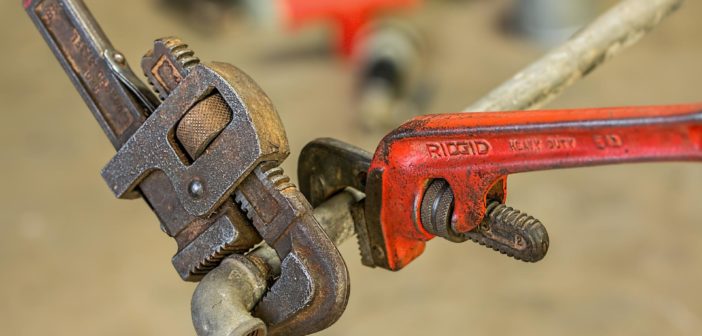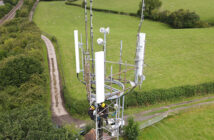Real plumbing repair is not one of the simplest Do-It-Yourself home jobs, other than using a plunger on a clogged toilet or using a liquid drain cleaner.
Most of the time, calling a plumber is the best course of action when pipes freeze or other domestic plumbing problems occur. Additionally, there will always be a need for qualified plumbers as long as people continue to have indoor plumbing (which is expected to continue).
Plumbers maintain and install the drainage and pipe networks that connect equipment, machinery, and water fixtures.
While some plumbers specialize in commercial plumbing, others focus on residential. While some specialize in installing systems in brand-new buildings, others are skilled in fixing existing systems. They perform their duties in buildings with pipes, including houses, offices, and factories.
Top Qualities Plumbers Must Have
When candidates apply for a plumbing job, employers look for a specific set of skills. These top skills are what a plumber needs to succeed.
Physical strength and Manual Dexterity
Working with pipes necessitates having the strength to support toilets, appliances, and pipework, as well as the stability to grasp pipe fittings and the hand-eye coordination to operate small items. Usually, this work is carried out in a tiny, confined space.
To thread fittings, read microscopic gauges, and understand designs, you must have good vision. The following are a few physical demands placed on plumbers:
- Getting Into Confined Spaces
- Adhesives, sealants, and caulk application
- Tidying up sewer lines
- Arm and Hand Power
- Installing equipment such as water heaters, water softeners, dishwashers, and refrigerators
- Installing Gas, Water, Steam, and Other Liquids Pipe Systems
- Hand-eye coordination
- Precision
- Using soldering techniques, tolerating potentially hazardous, noisy, or unpleasant working conditions
- Using Tools to Put Components Together
Welding and Mechanical Know-How
Understanding plumbing systems is necessary when dealing with water pressure. Trade schools, community colleges, and on-the-job training as an apprentice are all options for obtaining training for plumbing positions.
Most states demand that a plumber obtain a license before engaging in independent work. A license is often awarded after two to five years of experience and the successful completion of a test encompassing trade knowledge and knowledge of local codes and regulations, however, specifications differ by area. Plumbers can carry out tasks like the following thanks to their mechanical expertise:
- Use of Algebra
- Use of Geometry
- Applying Hydronics Principles
- Selecting the Appropriate Tools for the Task
- Fixing Clogged and Leaking Lines
- Installing faucets and sinks
- Blueprint interpretation
- Mechanical Intelligence
- Conducting Pipe System Pressure Tests
- Installations in Plumbing
- Pipe system repairs and plumbing repairs
- Maintain Your Knowledge of New Systems and Materials
- Changing Faulty Parts
Skills in Problem-Solving and Troubleshooting
Plumbing issues can occasionally be serious, therefore plumbers need to be persistent in order to complete the task successfully. Plumbers must have the ability to locate, recognise, and fix issues.
Working alone means you’ll frequently have to solve problems on your own, so you’ll need self-motivation to stay on task. You’ll need strong analytical and logical reasoning abilities, problem-solving abilities, and attention to detail to be able to:
- Determine Basic Math
- Identify Plumbing and Piping Issues
- Identify Issues
- After installation, check systems Projects
- Create Reliable Project Cost Estimates
- Diagnose System Failures
General Administrative and Business Skills
You’ll need to be knowledgeable in the following business administration and management skills if you choose to operate as an independent contractor:
- Computer Skills
- Paperwork completion for document services Rendered
- Calculating the Materials Types Needed for Projects
- Keeping Accounting Records
- Negotiating Service Agreements
- Promotional materials for business purchases
- Determining the cost of services
- Skills in Staff Supervision
Regulatory Compliance Skills
All finished projects, particularly those involving commercial plumbing, will be inspected. Customers and employers alike will always look to you for:
- Observe safety procedures
- Learn the building codes and follow them.
- Examine the most recent updates to the state and local plumbing codes.
The Soft Skills Plumbers Need
You’ll need to be able to effectively communicate and work with clients, team members, and supervisors in addition to the mechanical abilities you honed during your plumbing training and apprentice programs. As your career progresses, you can also be asked to mentor aspiring plumbers. You’ll need the following “soft talents” (both interpersonal and personal):
- Orientation to Directions
- Cooperating with Construction Workers and Other Grades
- Getting Clients to Spend Money on New Systems
- Consumer Assistance
- Flexibility
- Friendly attitude
- Cooperating with coworkers
- Giving customers instructions on how to use and maintain the reliability of systems
- Problem-Solving with Customers
- Teamwork
- Assistants in training and Apprentices
How to Make Plumbing Skills Stand Out on Resumes
When writing a plumber’s resume, take a look at the broad abilities that businesses include in their job postings. Then, strive to include as many of these in your resume as you can. According to the position you’re applying for, these talents will change, so you should modify each resume you send to reflect the characteristics that each employer is specifically looking for.




